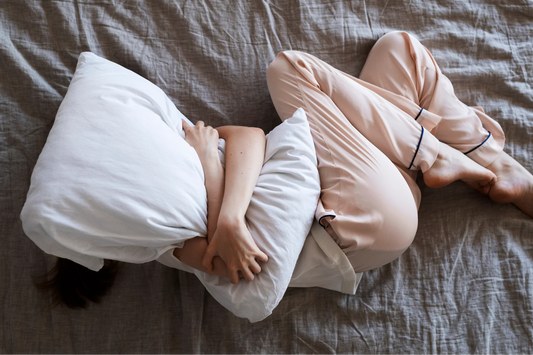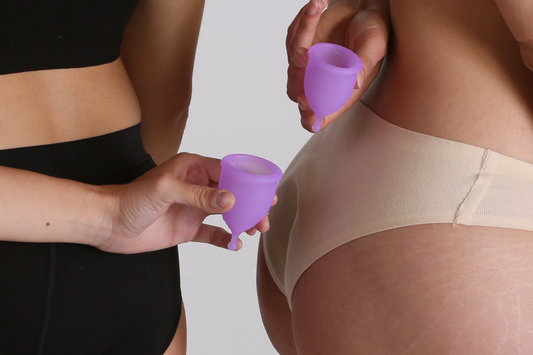
How cysts affect your period
The first thing I must tell you is don't panic! This is an issue that worries most women, but very little is said about it and in many cases it is usually normal. Of course, it is always important that you can visit your gynecologist for regular checkups, usually these cysts are detected in routine checkups, as they are asymptomatic.
To begin with, I will explain what an ovarian cyst is. An ovarian cyst is a fluid-filled sac that forms either outside or inside the ovaries. They are often benign and very, very small. These cysts appear at ovulation.
These cysts, called functional cysts, are closely linked to menstruation and usually disappear on their own. They affect many women and in several cases the menstrual cycle is affected, either by absence of menstruation or by heavy bleeding. In these cases, the best thing you can do is to be comfortable and count on pads, and if they are ecological, even better.

Ovarian cysts and menstruation
As we have told you, this type of cysts do not usually generate symptoms, but when they appear one of the main symptoms are the alterations in the menstrual cycle. In this case, alterations in menstruation can be noticed in different ways:
- Absence of bleeding.
- Heavy bleeding.
- Bleeding between periods.
- Severe abdominal pain before or after bleeding.
- Menstrual delays: this can cause you to feel wet but not get your period.
If you suffer from any of these symptoms, it is important that you consult your doctor, so that he/she can check you by doing an ultrasound, it is there where you can see if all these alterations are produced by the presence of ovarian cysts.
The important thing to manage these annoying symptoms, in addition to the treatment recommended by your doctor, is to be comfortable at all times, so we recommend you to opt for ecological and comfortable products.

Treatment
If they are functional ovarian cysts, no treatment is necessary. They usually disappear within 8 to 12 weeks. However, if these cysts appear repeatedly, it is best to take birth control pills. They can help reduce the formation of new cysts and reduce their size.
There are certain cases (very rare indeed) in which it is necessary to remove cysts, through surgery, these cases are:
- Complex ovarian cysts that do not disappear.
- Cysts that are causing symptoms and do not disappear.
- Cysts that increase in size.
- Simple ovarian cysts that are larger than 10 centimeters.
- Pre and postmenopausal women.











